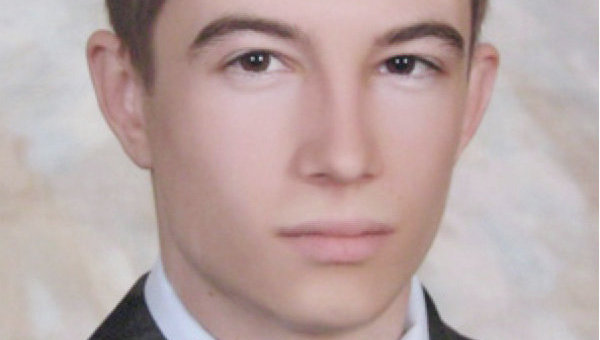
Dagestani Government Expands Counter-Insurgency Operations
Publication: Eurasia Daily Monitor Volume: 10 Issue: 207
By:

On November 16, the Russian security services reported the killing in Dagestan of Dmitry Sokolov, an ethnic Russian convert to Islam who was suspected of masterminding the female suicide bombing in the Russian city of Volgograd in October. According to Russian media reports, the security services imposed a counter-terrorism operation regime in Semender, a suburb of the capital Makhachkala, and blockaded five suspected militants, including Sokolov, in a house. A woman and child were allowed to leave the house, after which the suspected militants were killed. “In the course of talks, Sokolov took responsibility for terrorist attacks, including the blowing up of the bus in Volgograd,” the Russian National Antiterrorist Committee reported. “He said that he personally crafted the improvised explosive device that was eventually detonated by a female suicide bomber” (https://ria.ru/incidents/20131116/977378050.html#ixzz2kraznHio).
Sokolov, the son of a Russian military serviceman, converted to Islam and, in 2012, disappeared from the Moscow region, where he lived with his parents. It is believed that after his disappearance, Sokolov joined the Dagestani insurgency.
As often happens in Russian security service operations, there were several strange elements in the killing of the suspected perpetrators of the attack in Volgograd. Russian commentator Yulia Latynina reported that, prior to the shootout in Semender, her civilian contacts in Dagestan told her they had caught Dmitry Sokolov red-handed as he was video-recording a militant attack on an alcohol trading facility. She reported that civilians handed Sokolov over to the police, but that the police then chose to kill him in a “special operation” (https://echo.msk.ru/programs/code/1198767-echo/).
Some commentators were also quite skeptical about Sokolov’s purported voluntary confession to staging the attack in Volgograd. The Russian parliament recently passed legislation allowing the government to put the burden for the material compensation of victims of terrorist attacks on the relatives and friends of the terrorists. So by confessing to having organized the Volgograd attack, Sokolov would have opened the way for the government to require his parents and other relatives to pay for the damage caused by the attack.
Meanwhile, the situation in Dagestan is showing ever more profound signs of instability. On November 15, two groups of Muslims clashed in the Makhachkala suburb of Leninkent. The conflicting sides were identified as Salafis and Sufis. The authorities were keen to present the conflict as a purely internal religious affair, but police were at the scene of the conflict and apparently helped the Sufis against the Salafis, who are often associated with the insurgency. People from the Dagestani Spiritual Board of Muslims, the official Muslim organization dominated by Sufis, patrol Leninkent alongside the police. Moreover, the conflict quickly acquired inter-ethnic tones, as the Salafi part of Leninkent tends to be populated by ethnic Kumyks while the Sufi part of the town is made up mostly of Avars. The attackers in the latest clashes spoke Avar and reportedly conspired to “beat up these Kumyks.” There is an endemic conflict in the republic between ethnic Kumyks, who used to own much of the Dagestani lowlands, and the Dagestanis who traditionally resided in the mountains, such as Avars and Dargins. It now appears that the republican government is trying to use the conflict to sideline the Salafis and weaken the insurgency’s power base (https://kavpolit.com/na-molitvu-s-krovyu-i-nacionalnym-interesom/).
On November 15, government forces sealed off the village of Kharachi in Dagestan’s Untsukul district. An estimated 15 persons, including the head of administration and the imam of the village mosque, were arrested for unknown reasons. Ten people were later released without charge. People were not allowed to leave or enter Kharachi, but outsiders heard explosions and shooting inside the village (https://www.kavkaz-uzel.ru/articles/233621/).
The insurgency’s response to the government’s expanded counter-insurgency activities came on November 16, when a Dagestani insurgent calling himself Abu Muhammad Agachaulsky (Agachaul is a village in Dagestan’s Karabudakhkent district) issued an appeal to the republic’s Muslims urging them to help the insurgency. More importantly, the militant stated that because the government had started to target the families and children of the militants, they would do the same to servicemen and their families. The militant claimed that thanks to government corruption, the insurgency had obtained databases with the identities of servicemen from the Federal Security Service (FSB), the interior ministry and other government agencies. The databases include the addresses and activities of the servicemen that could be targeted by the rebels (https://vdagestan.com/obrashhenie-abu-muxammada-agachaulskogo-v-svyazi-s-poslednimi-sobytiyami-na-territorii-shamilkalinskogo-sektora.djihad). In October, the police reportedly found a list of people condemned to death by militants in Khasavyurt that included the names and nicknames of 80 people, including Dagestani Deputy Gaji Makhachev. The listed individuals had presumably either refused to pay the insurgency or worked as government informants (https://kavpolit.com/xasavyurt-sezon-oxoty-po-spisku/).
The expansion of the government’s punitive actions in Dagestan may be seen as a plausible strategy to quell the insurgency, but the overt reliance on crude force is also likely to produce a backlash in society. As the government presses ahead with more innovative forms of pressure on presumably disloyal parts of the population, the number of violent incidents in the republic is unlikely to decrease.




